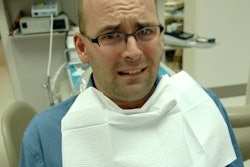
Due to the Patient Protection and Affordable Care Act (ACA), the Medicaid market for dental care will grow significantly nationwide, according to new research by the ADA Health Policy Institute. But translating expanded Medicaid dental benefits coverage to expanded access to dental care will require significant reforms to Medicaid programs, the researchers noted.
The authors of the new ADA research brief, titled "Medicaid Market for Dental Care Poised for Major Growth in Many States," wrote that the ACA "is changing the dental benefits landscape."
Researcher Marko Vujicic told DrBicuspid.com that the report offered evidence on a comprehensive approach to reform.
"The evidence strongly indicates that a comprehensive approach to Medicaid reform, including streamlining administrative procedures and enhancing provider reimbursement, can have a powerful effect on access to dental care," he wrote in an email.
More than 1 million adults in 36 states are enrolled in dental plans through the newly established health insurance marketplace, according to recent ADA research. However, the growth in Medicaid coverage will be much larger, noted ADA researchers Cassandra Yarbrough, MPP; Marko Vujicic, PhD; and Kamyar Nasseh, PhD. They estimated that more than 8.3 million U.S. adults will gain dental benefits through Medicaid expansion.
The number of adults who could gain dental benefits through Medicaid after expansion will increase by more than half, an average of 51.9%, across the 31 states and District of Columbia (DC) that provide limited adult dental benefits, the researchers said. The increases vary from 9.2% in North Carolina to a whopping 205.2% in Arkansas.


Potential increase due to the ACA in the number of adults with Medicaid dental benefits, by state. Image courtesy of the ADA Health Policy Institute.
To measure Medicaid market growth, the researchers used estimates of the number of adults and children who were uninsured before 2014 and compared them to those eligible for Medicaid postexpansion, using data provided by the Henry J. Kaiser Family Foundation.
“Our analysis shows clearly that the growth in the Medicaid market in many states is significant—more a tsunami and less a trickle.”
The study focused on the 31 states and DC that offer dental benefits beyond emergency care for the adult population and on all 50 states and DC for the child population. States are required to provide dental benefits for Medicaid-enrolled children. The researchers also analyzed potential enrollment growth in four states that do not offer adult Medicaid dental care: Florida, Georgia, Kansas, and Maryland. In these four states, the majority of the adult Medicaid population is enrolled in managed care plans that offer value-added, limited adult dental benefits.
The study assumed that states expanding Medicaid eligibility provide the same level of dental benefits to newly eligible postexpansion adults as they do to the pre-expansion adult Medicaid population.
"Our analysis shows clearly that the growth in the Medicaid market in many states is significant -- more a tsunami and less a trickle," the researchers wrote.
In eight states that provide limited or extensive adult dental benefits, the number of adults in Medicaid is expected to more than double, they noted. Even in many states that are not expanding Medicaid under the ACA but provide adult dental benefits, there will be significant growth in the Medicaid market, the researchers said.
Medicaid expansion and access to care
Low-income adults are also the group most likely to avoid or delay needed dental care, and they have, by far, the most significant increase in the rate of emergency room visits for dental conditions, according to the researchers.
Medicaid expansion also has the potential to reverse important access-to-care trends, the authors noted. "Low-income adults are precisely the group that has experienced the most significant erosion in access to dental care over the past decade," they wrote.
"However, it is vital to understand that expanded coverage does not equal expanded access," the authors continued. "Medicaid programs are not prepared for a spike in demand for dental care among adult beneficiaries."
Notably, Medicaid reimburses adult dental care services at much lower rates than pediatric services, according to recent ADA research. Dental care in Medicaid is also reimbursed at much lower rates than primary medical services, which has mandatory reimbursement increases as part of the ACA.
"Looking forward, most states are not extending the Medicaid fee hike to physicians that was instituted as part of the Affordable Care Act, which tells you what the fiscal climate is like," Vujicic told DrBicuspid.com. "However, given that Medicaid reimbursement to dentists is, on average, much lower than Medicaid reimbursement to physicians, there still is scope in many states to implement evidence-based policy reforms that address, among other things, provider reimbursement."
Results
Not all of the states in the study are expanding Medicaid eligibility under the ACA, the researchers noted. The report authors still expect an increase in the number of adults in Medicaid due to enhanced enrollment activities (the "woodwork effect") in the 11 states that are not expanding eligibility. In some nonexpansion states, the woodwork effect is significant. Alaska, for example, is not expanding Medicaid under the ACA but could still see as much as a 38.2% increase in the number of adults on Medicaid, they noted.
Also, some state Medicaid programs rely heavily on managed care plans that may provide a broader set of dental benefits than the state's Medicaid plan. Specifically, the Medicaid programs in Florida, Georgia, and Kansas provide emergency adult dental benefits; the Medicaid program in Maryland does not provide any adult dental benefits.
However, the majority of Medicaid-insured adults in those four states are enrolled in managed care plans that provide value-added, limited adult dental benefits. The potential increase in the number of adults with Medicaid managed care dental benefits in these states ranges from 11.1% in Florida to 62.4% in Maryland.
The average increase in the number of children gaining dental benefits through Medicaid nationwide is 15.9%, ranging from 3.7% in DC to 40.6% in Nevada.
Conclusion
"New research suggests that if enabling conditions are in place, the dental care system can, in fact, absorb influxes of Medicaid adults with newly gained dental benefits," the study authors concluded. "In our view, however, translating expanded dental benefits coverage to expanded access to dental care and, ultimately, improved oral health will require significant reforms to Medicaid programs."
There is sufficient evidence that "good practices" can be used to guide policy reforms, according to the study authors. "Bold action is the next step," they noted.



















